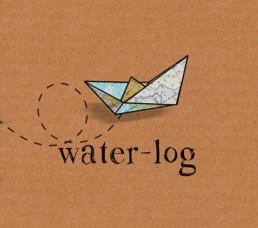We have sailed up the Rio Guadiana, a river which acts as part of the border between Portugal and Spain. It’s a lovely spot and we’ve been here for a couple of days. It was recommended to us by Tom Meyer, who we met when anchoring at Alvor. He said that it was a strange river, full of boats at anchor. He remarked that they were all rather interesting boats as they were all the people who meant to sail around the world but somehow forgot to go any further.
Our chosen anchor spot is in the middle of the river, between the Portuguese town of Alcoutim and the Spanish Sanlúcar de Guadiana. Both towns have a church and a castle. The church bells at Sanlúcar chime first in the morning, cheerfully indicating that it is 9am. Two minutes later, the Alcoutim church bells can be heard, insisting that it is only 8 o’clock, and it’s fine to still be in bed. The Portugese church bells also sound a haphazard little tune for some mysterious reason at both 12noon and 2pm. Both towns are also constantly ringing with the lazy sleepy tunes of goat bells, sounding softly as the goats graze along the river banks.
Sanlúcar has a good little shop, one of those wonderful ones that sells fresh plum tomatoes, lighter fluid and fishing tackle all in the same place, owned by a round woman with laughing eyes who keeps a friendly siamese cat. The town has two very small bars that seem to be always closed and there is an artist’s studio which also doubles as the book exchange (common in boat world). This is run by a rather eccentric Englishman who confirms that many along the river have circumnavigated. He divides these sailors into two types “the escapees and the explorers” and asks which category we fall into. “Explorers” we chorus, without blinking, thinking fondly for a moment on our lives in London.
Alcoutim, by contrast, has a lot more life. It supports several little bars and restaurants which all appear to be full of people most of the time. Our first night we sat in one of these, by the water’s edge, each sipping a small beer and listening to a group of Portuguese men who were drinking at the next table, and cooking some meats that they’d bought locally. Soon, we were invited to join them and sample the sausages, chicken gizzards and beef liver morsels they were snacking on as well as share in their wine and beer. One was Spanish, and lived in Sanlúcar but admitted that it was nicer to spend the evening in Alcoutim (although he needed to return home to his wife an hour earlier than the others given the time difference). The group was later joined by other characters including a deaf mute who James had amazing gestural mime conversations with and a French teacher who I spoke with at length in French, English, Spanish and snippets of Portuguese.
With such brilliant impromptu evenings as this on offer you can see why some of the escapees decided to venture no further.

